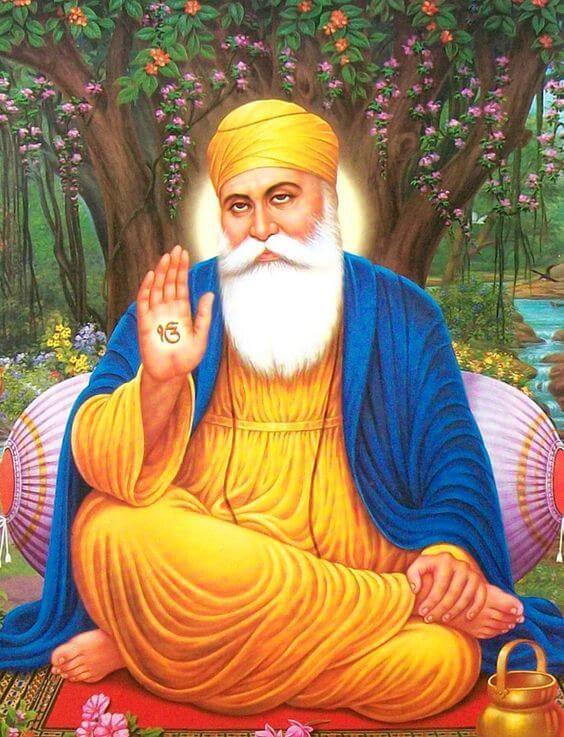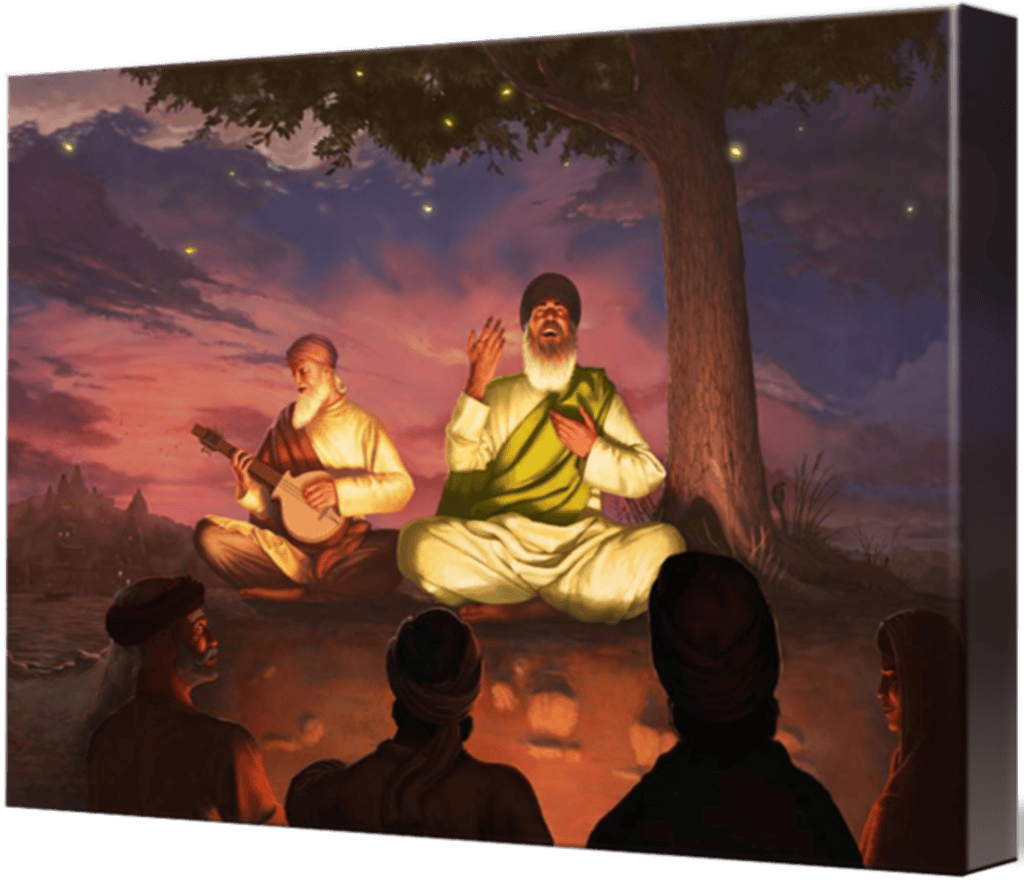Sikhism

Guru Nanak Dev Ji (1469 - 1539)
( The Founder of Sikhism, spread the message of One God and equality )
Sikhism: A Divine Path of Truth and Service
What is Sikhism?
Sikhism is not just a religion—it is a way of life, a philosophy rooted in oneness, truth, and selfless service. Founded in the 15th century by Guru Nanak Dev Ji, Sikhism emerged in the Punjab region to guide humanity toward spiritual enlightenment, equality, and righteousness.
It teaches us to see God in all, to work honestly, to share with others, and to serve humanity selflessly. Rituals and superstitions hold no value in Sikhism—what matters is a pure heart, noble actions, and devotion to the Divine
All About Sikhism
Naam Japna (Chant and meditate on God’s Name)
Kirat Karni (Earn an honest living with integrity)
Vand Chakna (Share with and serve those in need)
Who are Sikhs?
Sikhs are warriors of truth, compassion, and justice. They are devoted disciples of the Gurus who live by the values of honesty, equality, and bravery.


Ardas: A Powerful Sikh Prayer
Mool Mantra
The Essence of Sikhism
"Ik Onkar, Sat Naam, Karta Purakh, Nirbhau, Nirvair, Akaal Moorat, Ajooni, Saibhang, Gurprasad."
It proclaims that God is One, eternal, fearless, without hate, beyond birth and death, self-existent, and attained through divine grace.The Ten Sikh Gurus: Carriers of Divine Wisdom
| Guru | Lifetime | Contribution |
|---|---|---|
| Guru Nanak Dev Ji | 1469 - 1539 | The Founder of Sikhism, spread the message of One God and equality |
| Guru Angad Dev Ji | 1504 - 1552 | Introduced the Gurmukhi script |
| Guru Amar Das Ji | 1479 - 1574 | Promoted women's rights and community service |
| Guru Ram Das Ji | 1534 - 1581 | Founded the holy city of Amritsar |
| Guru Arjan Dev Ji | 1563 - 1606 | Compiled Guru Granth Sahib Ji and built Sri Harmandir Sahib |
| Guru Hargobind Ji | 1595 - 1644 | Introduced the concept of Miri-Piri, balancing spirituality and warrior spirit |
| Guru Har Rai Ji | 1630 - 1661 | Advocated for compassion and environmental preservation |
| Guru Har Krishan Ji | 1656 - 1664 | The youngest Guru, known for healing the sick |
| Guru Tegh Bahadur Ji | 1621 - 1675 | Sacrificed his life to protect religious freedom |
| Guru Gobind Singh Ji | 1666 - 1708 | Established the Khalsa and declared Guru Granth Sahib Ji as the eternal Guru |
Gurpurabs & Sikh Teaching's
| Topic | Details |
|---|---|
| Gurpurabs: Celebrating the Sikh Gurus | Gurpurabs are sacred occasions that mark the birth or martyrdom of the Sikh Gurus. |
| Major Gurpurabs |
|
| Celebrations on Gurpurabs |
|
| The Timeless Message of Sikhism | Sikhism imparts profound wisdom. |
| Core Teachings |
|
| Sikh Way of Life | Living with humility, kindness, and devotion leads to true peace and fulfillment. |
The Meaning of Singh and Kaur
Singh (meaning "Lion") symbolizes courage, strength, and fearlessness, given to Sikh men by Guru Gobind Singh Ji.
Kaur (meaning "Princess") represents dignity, independence, and grace, empowering Sikh women with equality and self-respect.
Sikh Ceremonies: Sacred Milestones
- Naam Karan – Naming ceremony of a newborn.
- Anand Karaj – The blissful Sikh wedding ceremony.
- Amrit Sanchar – Initiation into the Khalsa Brotherhood.
- Antim Sanskar – Sikh funeral rites, celebrating the soul’s journey.
Sikh Festivals: Expressions of Faith & Joy
- Vaisakhi – Celebrating the birth of the Khalsa Panth.
- Diwali – Marking Guru Hargobind Ji’s release from imprisonment.
- Hola Mohalla – Showcasing Sikh martial arts and bravery.
- Maghi – Remembering the sacrifices of 40 Sikh warriors.
If you seek any modifications or additions, feel free to reach out!
Waheguru Ji Ka Khalsa, Waheguru Ji Ki Fateh! 🙏
